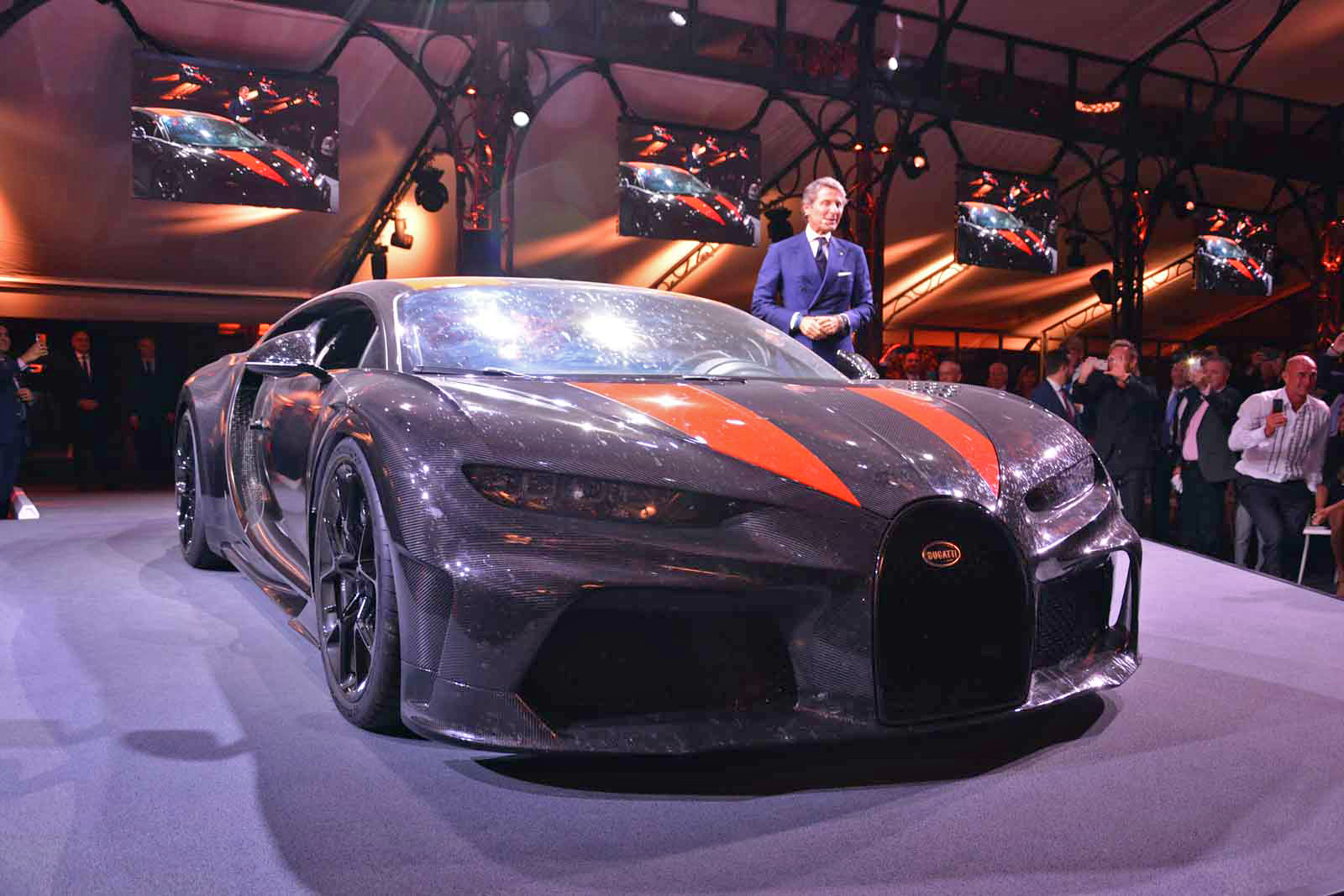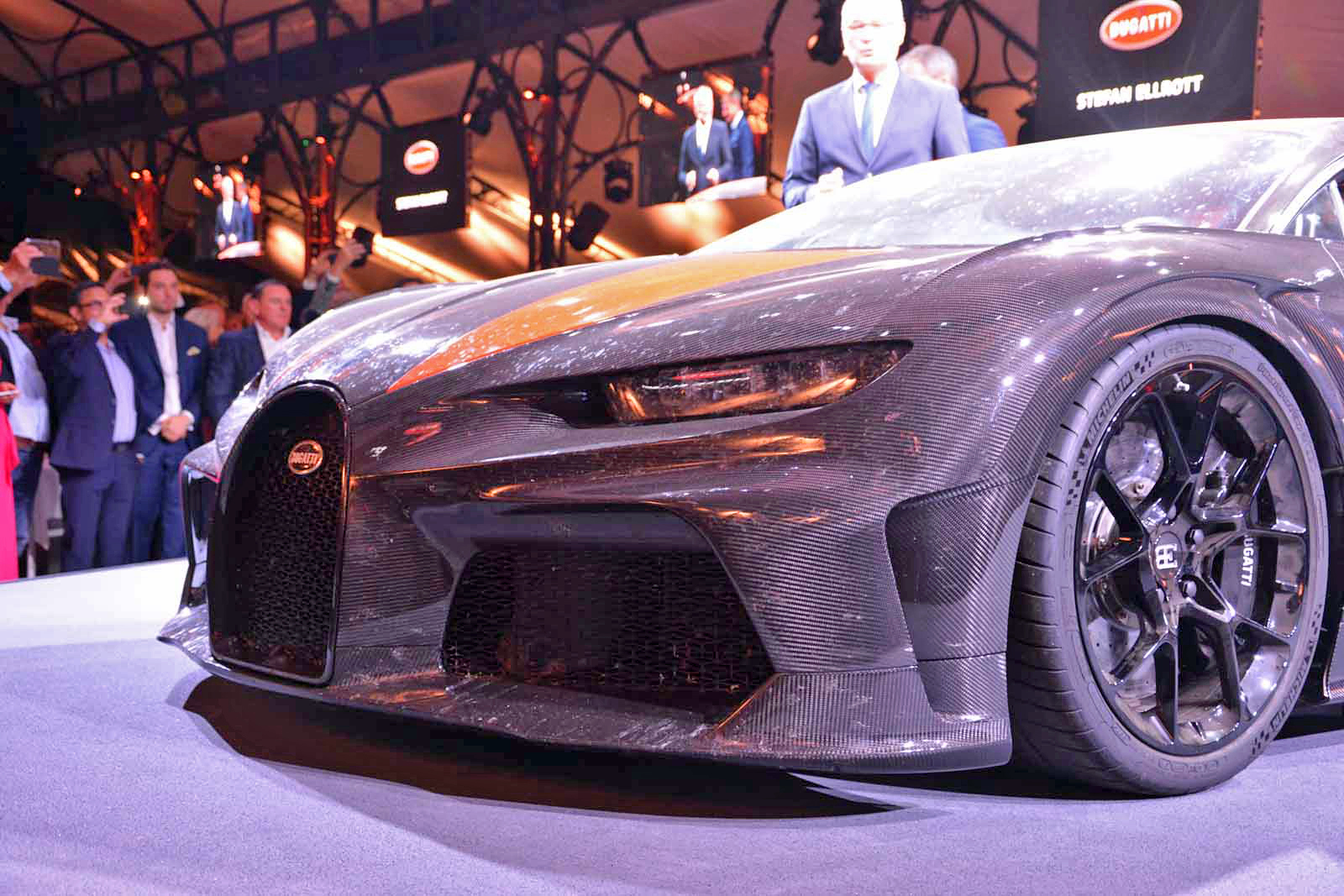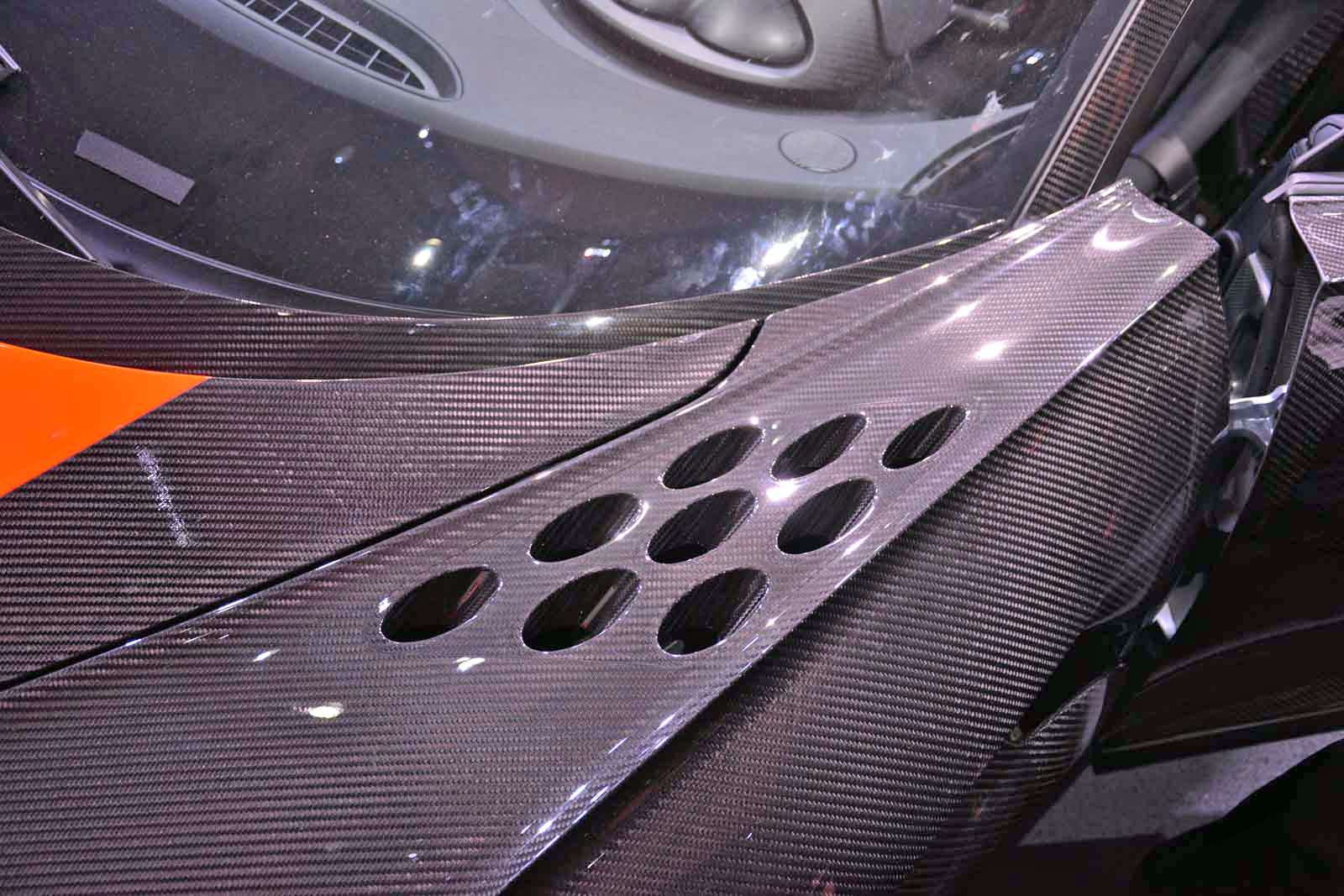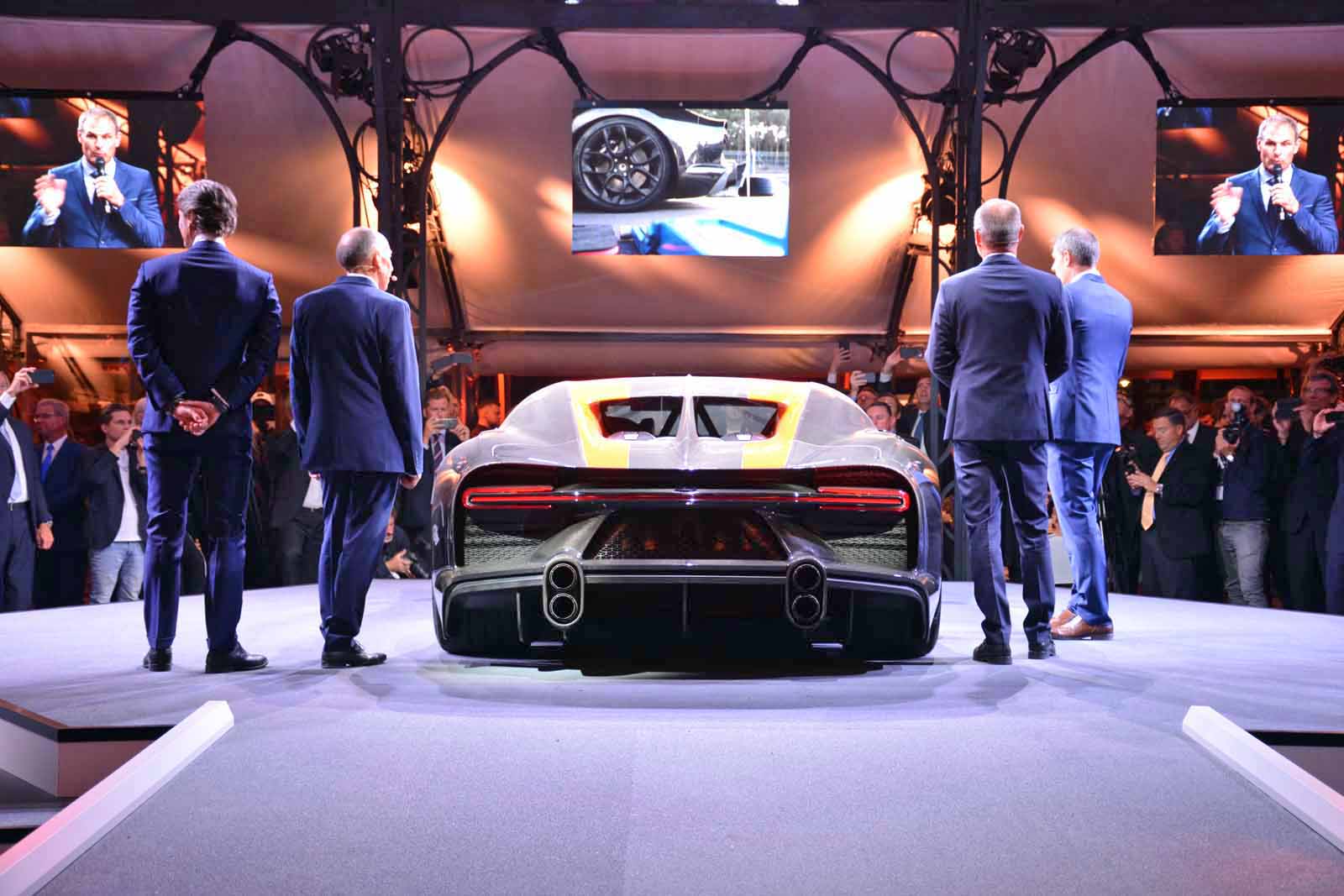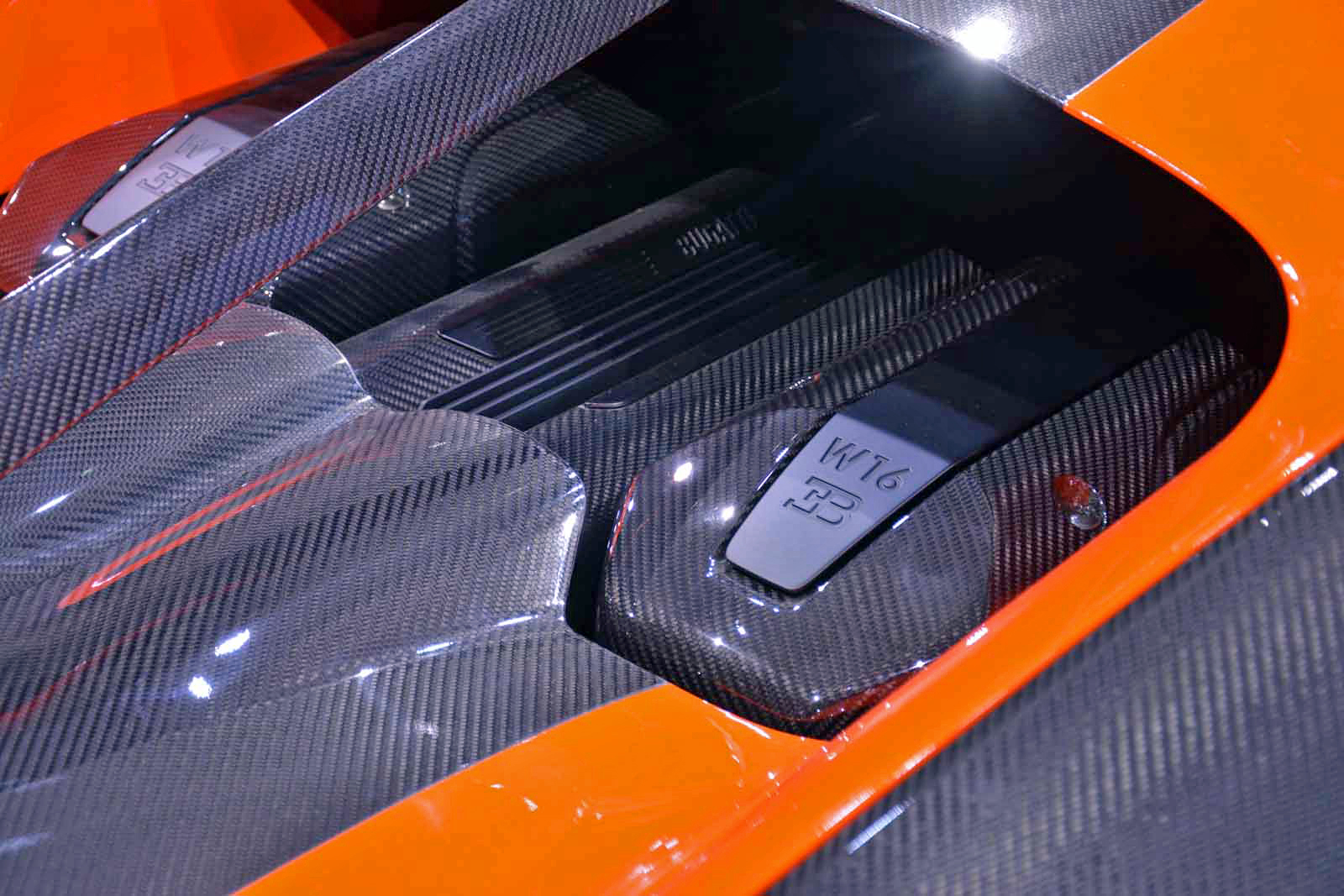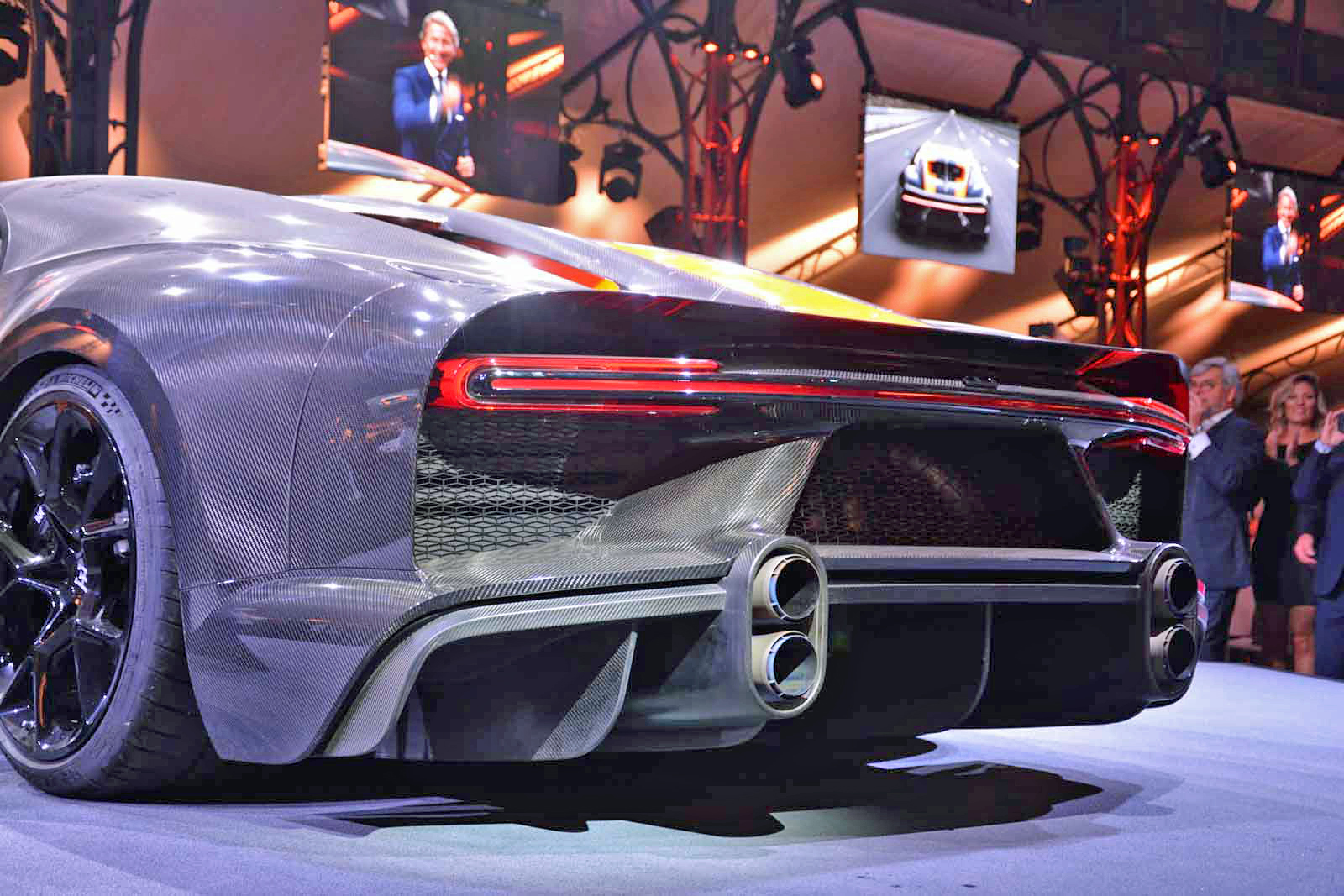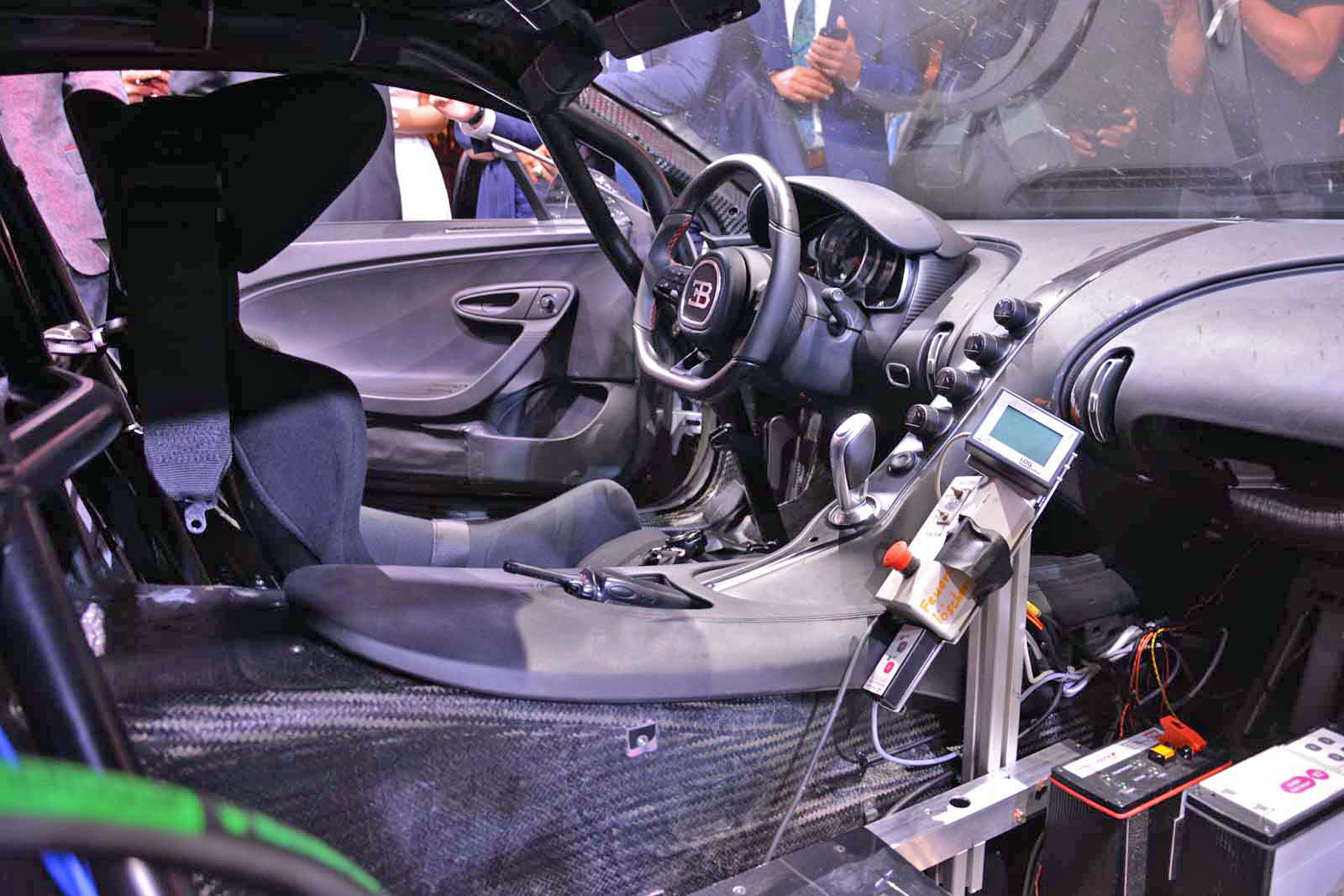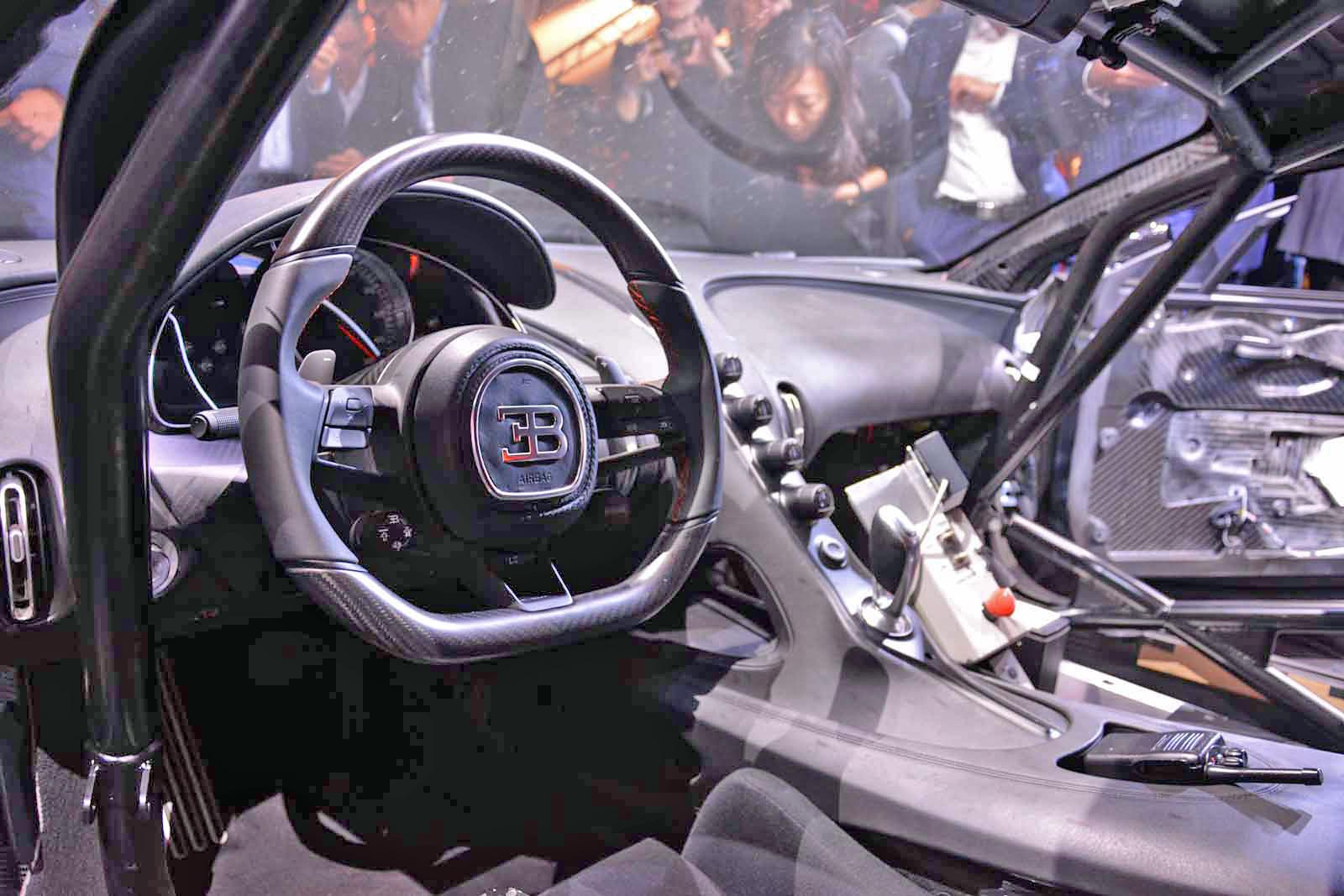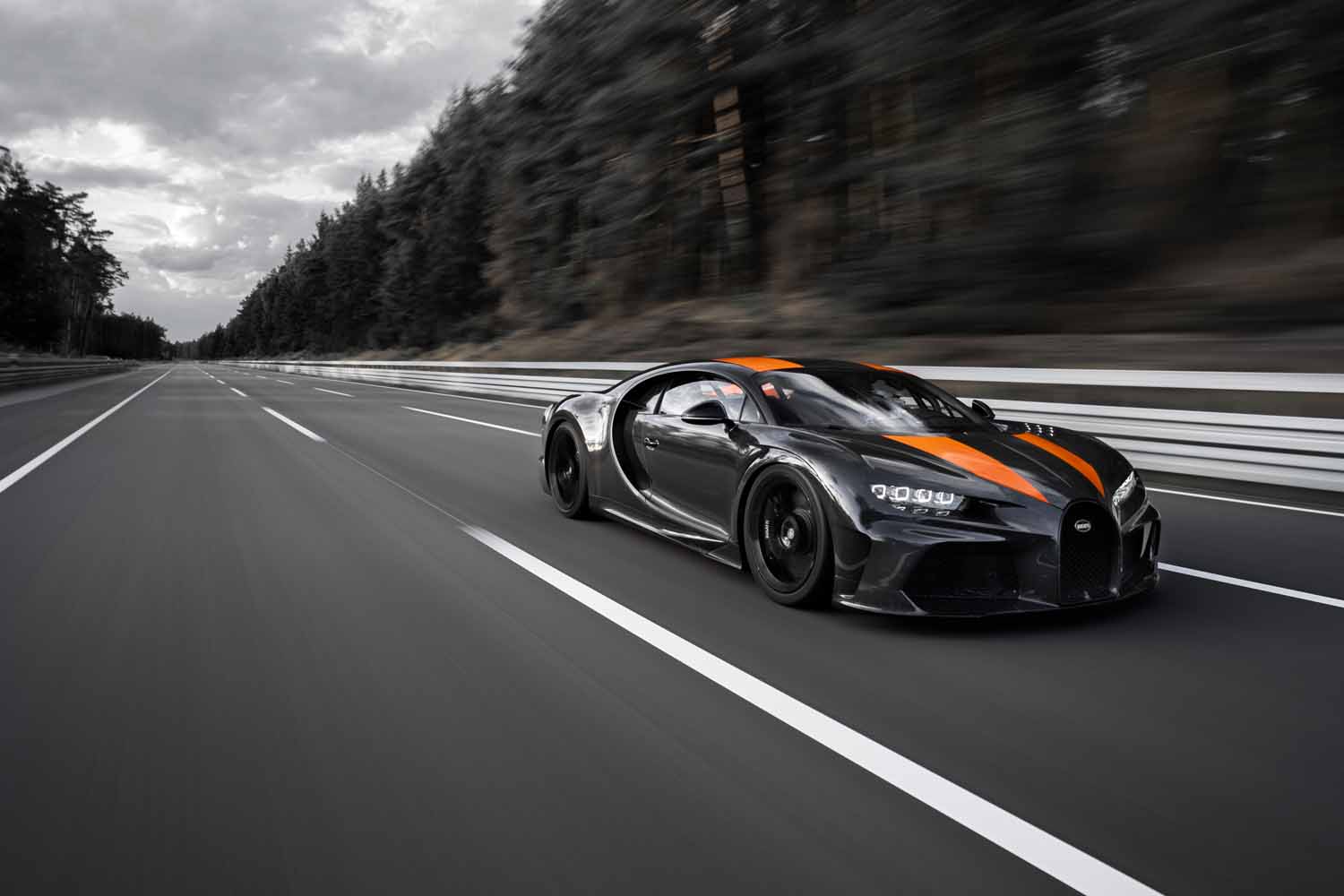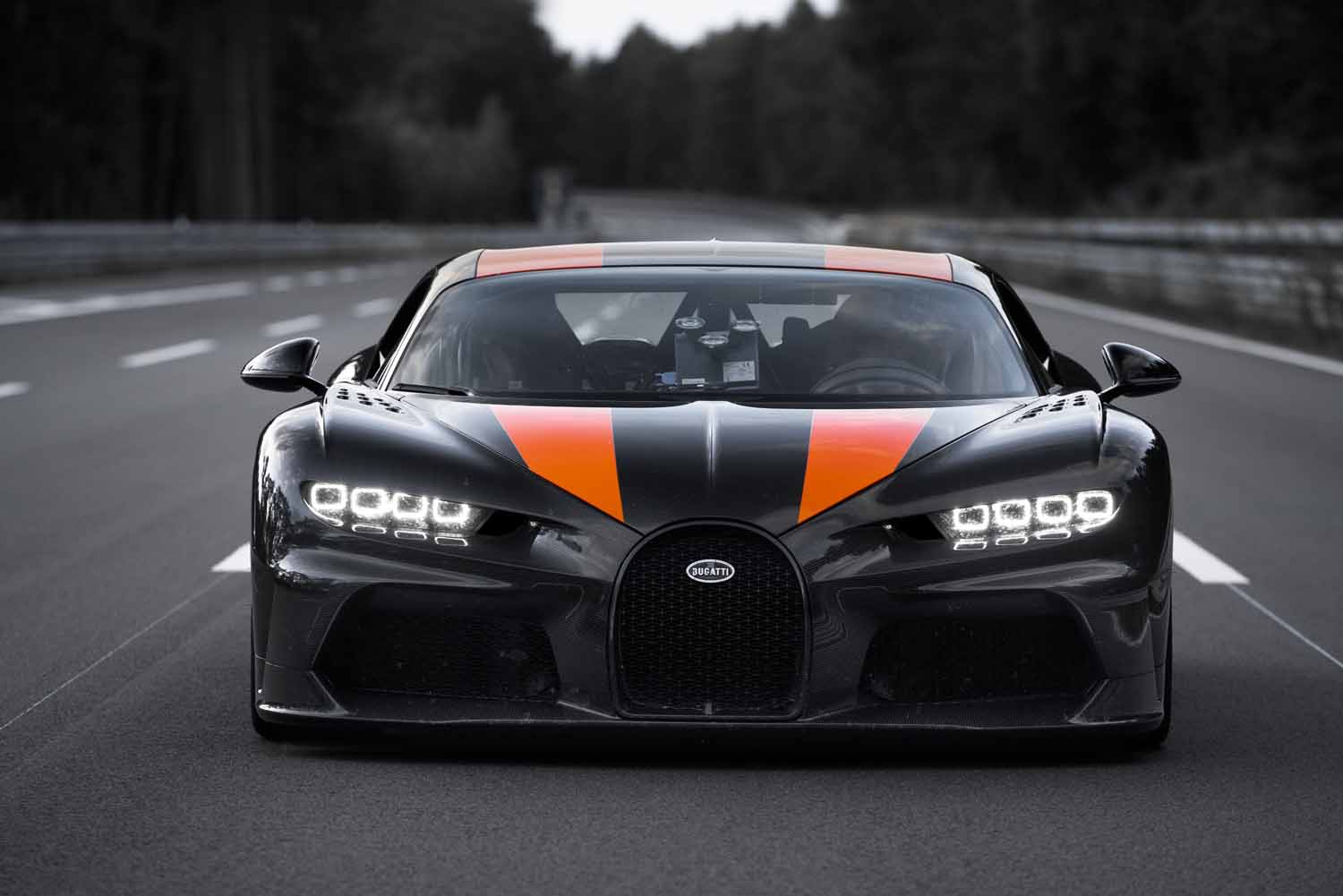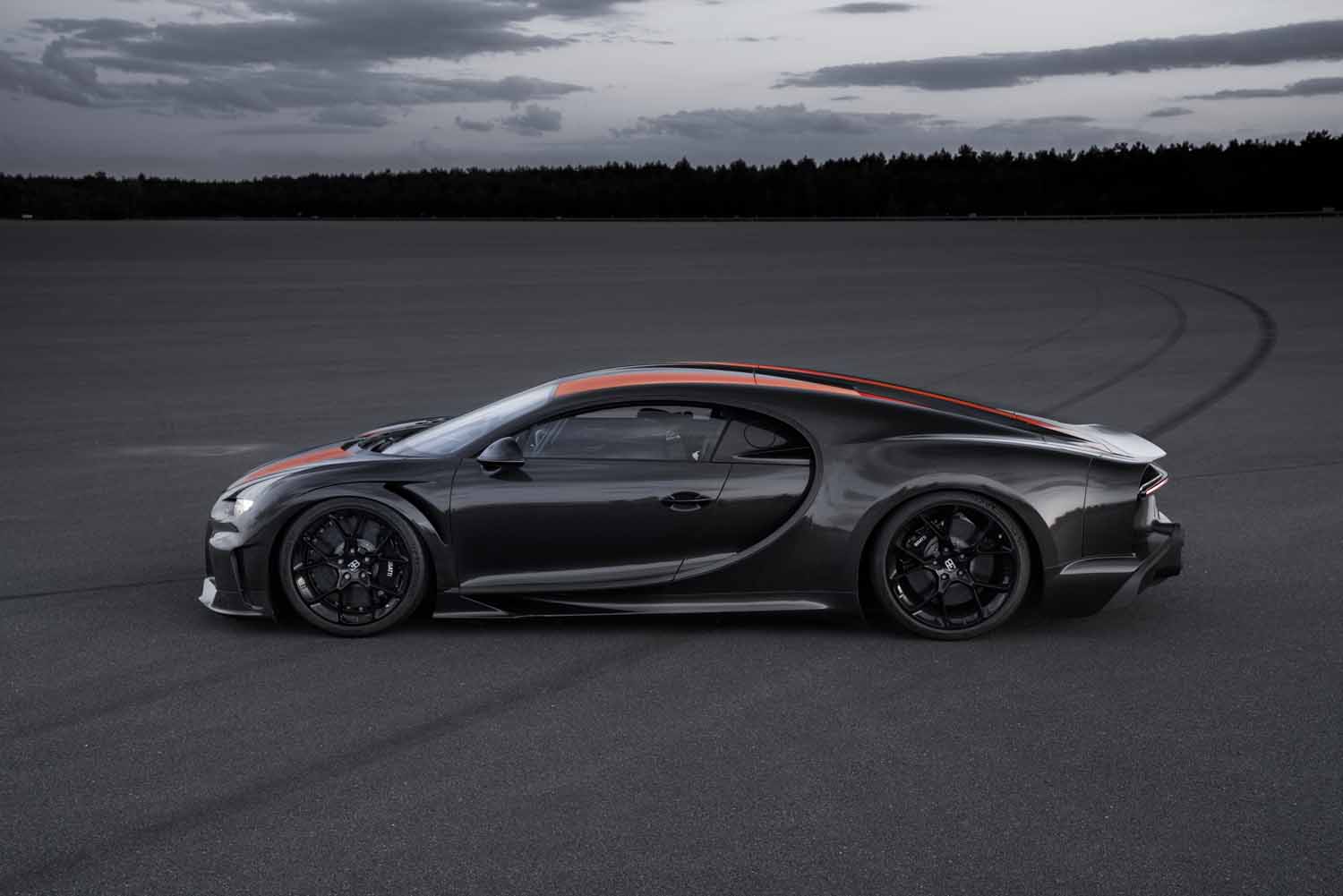Bugatti quietly built a highly aerodynamic evolution of the Chiron to break the 300-mph barrier and become the fastest car in the world. British pilot Andy Wallace slipped behind the wheel, and made achieving both goals look easy.
Documented by a sealed GPS box, the record was set on a German test track named Ehra-Lessien. There are thousands of race tracks in the world, but Volkswagen’s official test circuit is the ideal place for high-speed runs because it offers intrepid drivers a 5.4-mile stretch of straight pavement on which to exercise their car’s muscles. It’s on this part of the track that Wallace reached 304.773 mph in the Chiron-based prototype.
Official photos confirm the record-breaking car is based on the Chiron, but it wears a modified body with a longer rear end that allows it to keep its four wheels on the ground even as it crests the 300-mph mark. The extension is made with carbon fiber to keep weight in check, and to match the rest of the body, which is also manufactured using the lightweight composite material. Front-end tweaks and a bigger rear diffuser further improve the car’s aerodynamic profile, Digital Trends learned.
The aerodynamic modifications played a large role in helping the Chiron become the fastest car in the world, but other factors played a big role as well. The car was fitted with reinforced Michelin Pilot Sport Cup 2 tires that were sent through an X-ray machine before being installed to make sure they were 100% perfect. And, power comes from a 1,600-horsepower evolution of the standard Chiron’s quad-turbocharged, 8.0-liter W16 engine. The regular, 1,500-horsepower variant is obscenely quick; Digital Trends called its acceleration “uncanny” after driving it on the roads around its home town. We can only imagine what injecting 100 additional horses into the driveline achieves.
The 304-mph run brings the top speed crown back into Bugatti’s court. The Veyron Super Sport earned the bragging rights when it reached 267 mph on the same track in 2010, but it was bumped down from the podium’s top spot when the Koenigsegg Agera RS hit 285 mph in 2017. The Swedish boutique automaker can’t use Volkswagen’s test track, so the record attempt famously took place on a closed stretch of a Nevada highway. Don’t expect Bugatti to go for 310 mph, though.
“We have shown several times that we build the fastest cars in the world. In the future, we will focus on other areas,” said company boss Stephan Winkelmann in a statement.
Bugatti will make 30 examples of the record-breaking car. Called Chiron Super Sport 300+, it was presented to a room full of hand-selected customers during the company’s 110th birthday celebrations, and the entire production run was spoken for before the event closed its doors. Pricing started at $3.5 million, a relatively small $500,000 premium over the standard car.
Updated on September 9, 2019: Added information about Bugatti’s retirement, and about the Chiron 300+.
